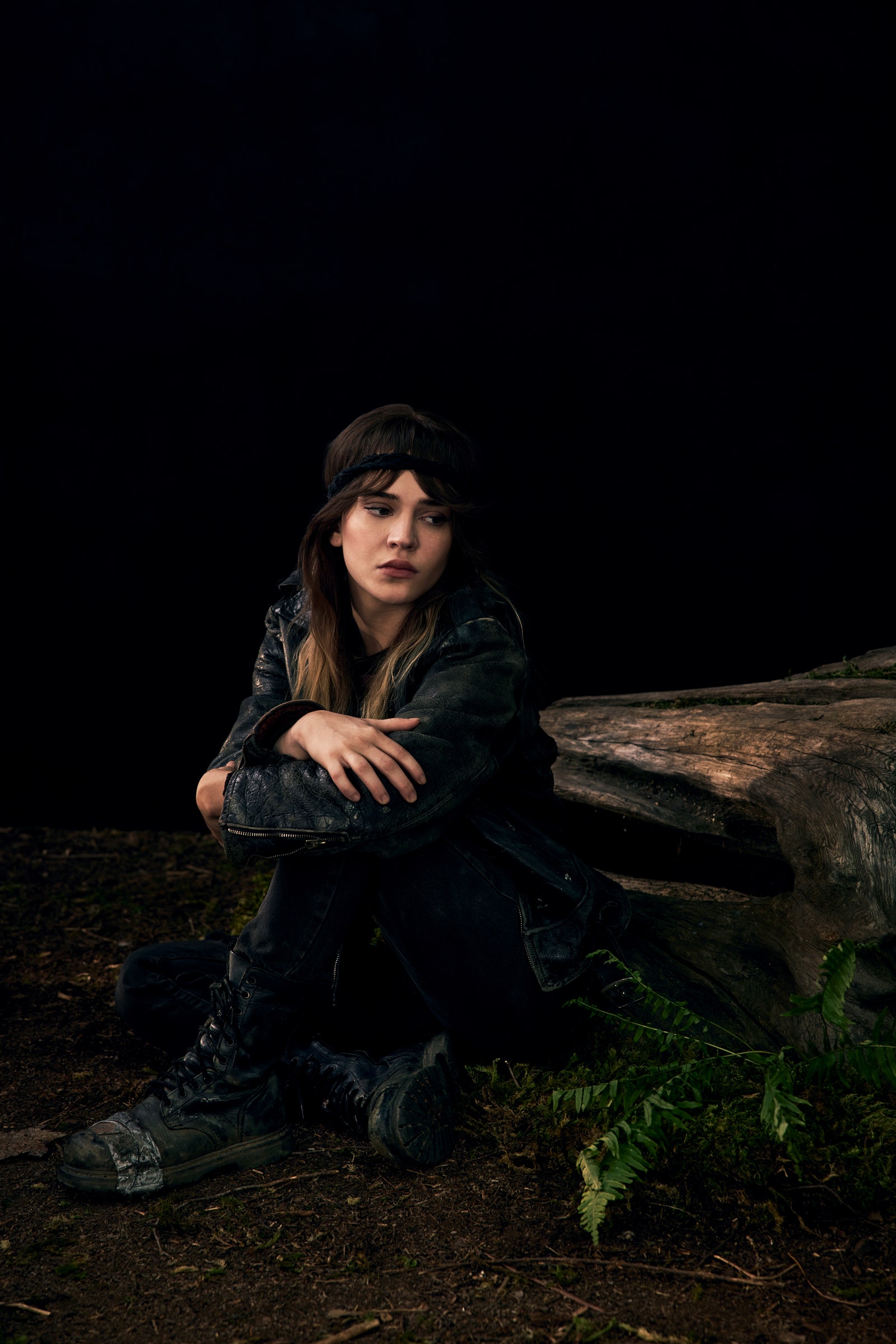Some of Sister Barnes’s history, particularly the character’s rigid physicality, came from Thatcher’s own past with the church. “There’s a tenseness,” she says, “a feeling of wanting to please. I had that when I was younger, in the church. It was a lot of specific things that kept being brought back, just little tense ticks that maybe didn’t fully make it in the movie, but got me into that headspace.”
She didn’t hesitate to delve back into her “very liberal Mormon background” for the role—but Thatcher also didn’t want the film to disrespect her mother, who still attends church and plans on seeing the film with members of her ward. Though Mormons “are always the butt of the joke,” says Thatcher, she has maintained affection for the people with whom she once worshiped. “Once you’re in that community, they’re very loving and very giving,” she explains. “Even when I left the church, it was always flowers, cookies—just a lot of kindness.” Thatcher has a sense of humor about it all too. “Growing up, people would ask me, ‘What is Mormonism?’ And I was like, ‘Watch the South Park episode. It’s actually pretty good.’”
That said, Thatcher’s steering clear of Mormonism’s current reality TV wave, which led to Whitney Leavitt and Whitney Rose—from Hulu’s The Secret Lives of Mormon Wives and Bravo’s Real Housewives of Salt Lake City, respectively—hosting Utah-based screenings of Heretic. “I need a month of not thinking about Mormonism, because I’ve never talked about it so much in my life,” says Thatcher. “I wasn’t even that invested when I was in church, ’cause I always had something else going on. It really feels like I’m going back to when I was a child, even doing these interviews.”
Nevertheless, negotiating her release from Grant’s chunky-sweatered madman proved to be “very therapeutic” in exorcising some pent-up feelings. “Every movie I’ve chosen somehow feels like an emotional release,” says Thatcher, who after turns in The Book of Boba Fett and MaXXXine, next stars in the horror film Companion opposite Jack Quaid. “Yellowjackets is harder, because Natalie has so many demons. It’s hard to tap into that and then get out of it. Especially this season,” she continues. “I feel so much anger with the state of the world right now, so it’s nice to be able to release and stand up for yourself—even if it’s not you.”
Thatcher entered the upcoming third season of Yellowjackets as a lone wolf. Her adult-aged counterpart, played by Juliette Lewis, was killed off in the show’s season two finale—a reality that became abundantly clear when Thatcher went to shoot photos featured in Vanity Fair’s first look at the new episodes, which feature the rest of her castmates posing with the actors who play the present-day versions of their characters. “On the day, they were like, well, we weren’t going to have you for this, but do you want to do it?” Thatcher recalls with sadness. “Of course I want to do it! I’m a part of the cast.”
Sophie Thatcher as Teen Natalie in Yellowjackets Season 3.Victoria Will
While she tries to stay away from comments sections, Thatcher couldn’t resist peeking as people reacted in devastated fashion to her character’s solo shot, juxtaposed against the joint photographs of duos like Melanie Lynskey and Sophie Nélisse. “I was going through every comment and everyone’s like, Natalie!” Thatcher recalls with a cry. “I think it resonated. It sets people up for the season, ’cause it gets really dark. You get to see more of my Natalie. It makes me really emotional. People really feel for my character. I love my character more than anything in the world, and I don’t know if I’ll ever feel this again. There was a point toward the end of the season where I would talk about Natalie and just start crying. I’m so protective of her, and that just makes for a really beautiful, intense experience.”
Thatcher says she had a different kind of autonomy over Natalie in the third season, given that her performance was no longer tethered to another performer. “I felt less pressure to match [Lewis’s] voice, because that was always in my head. Once you read praise, like, oh, their voices are so similar, I just got too self-aware,” she says. “Season two, it got in the way of me being present because I was so keen on just matching everything. But this season there’s a freedom where I could be present in the scene and know that Natalie is in me at this point.”





